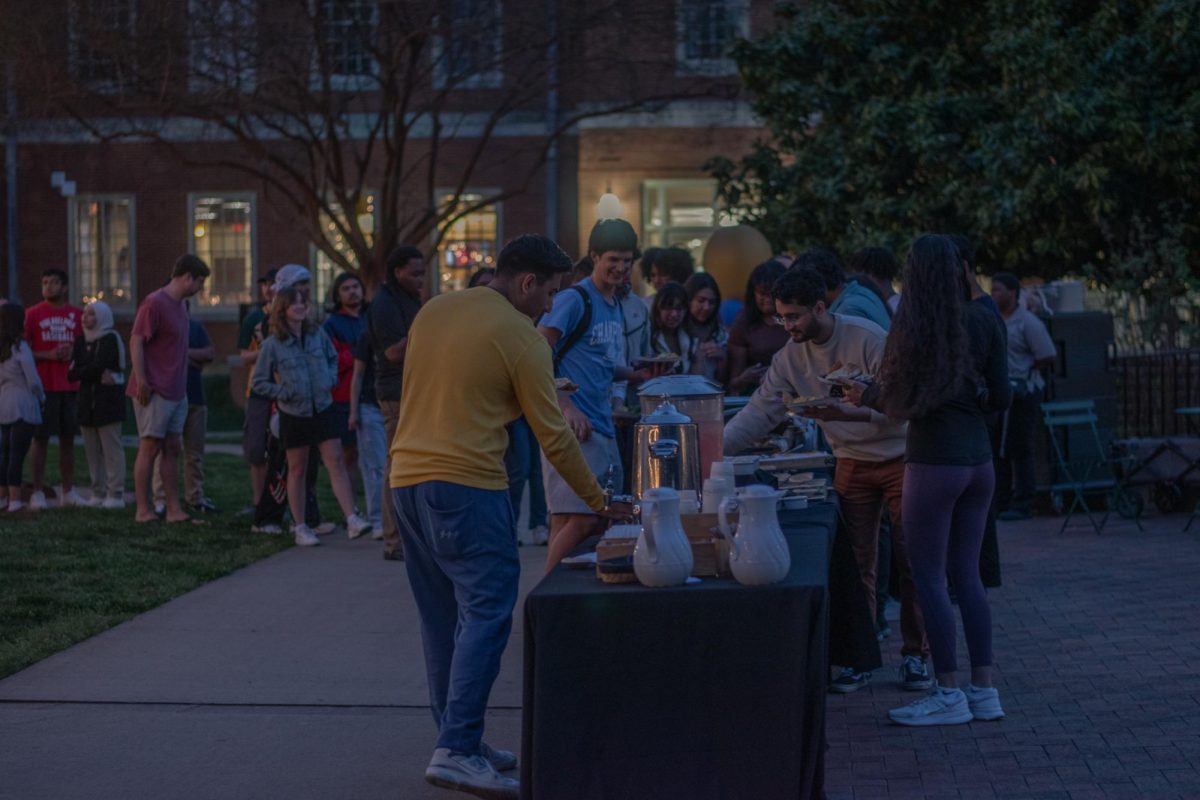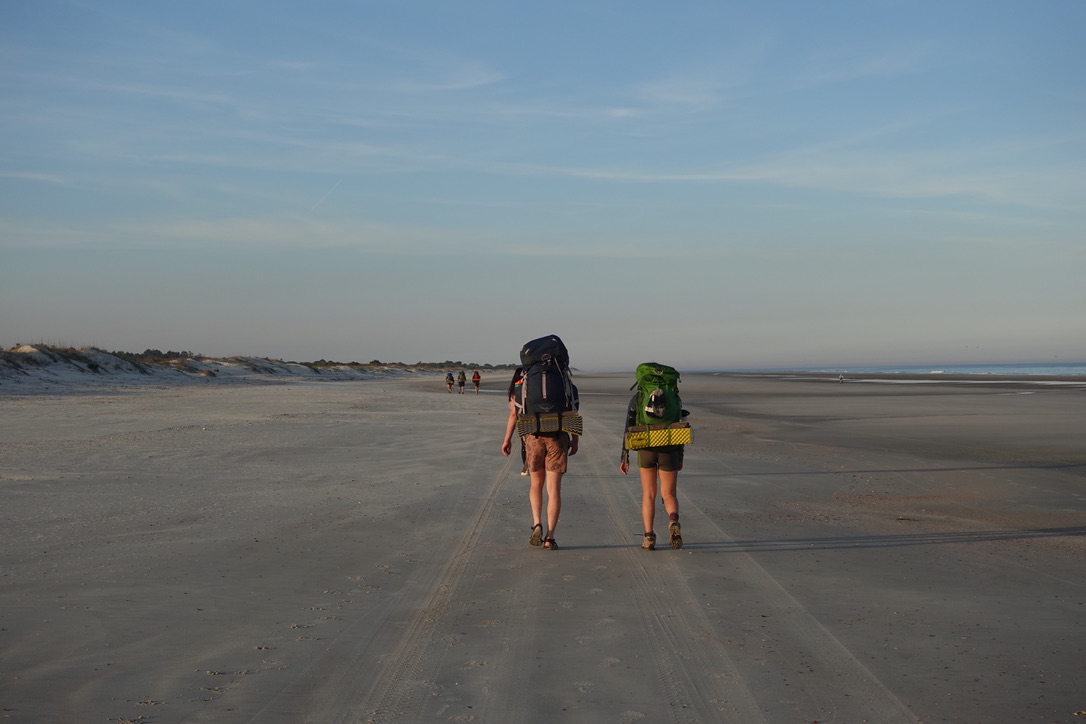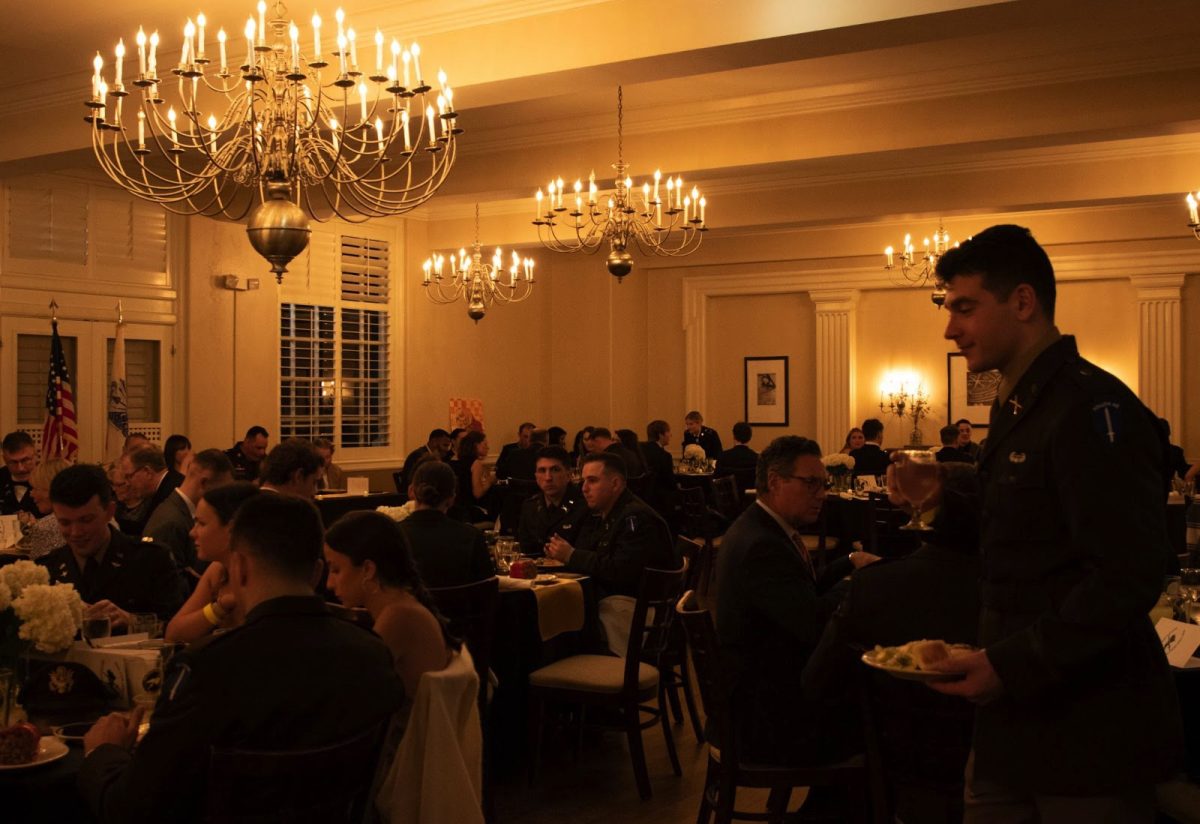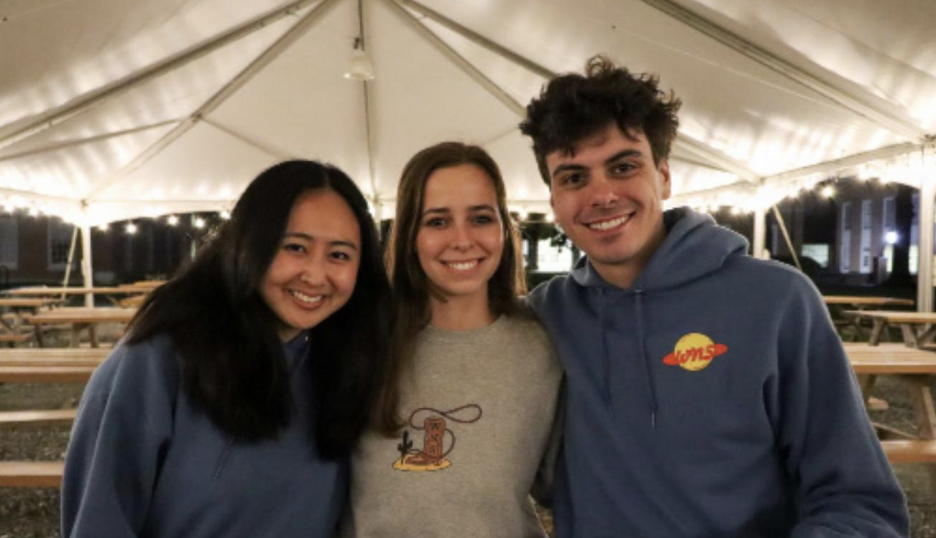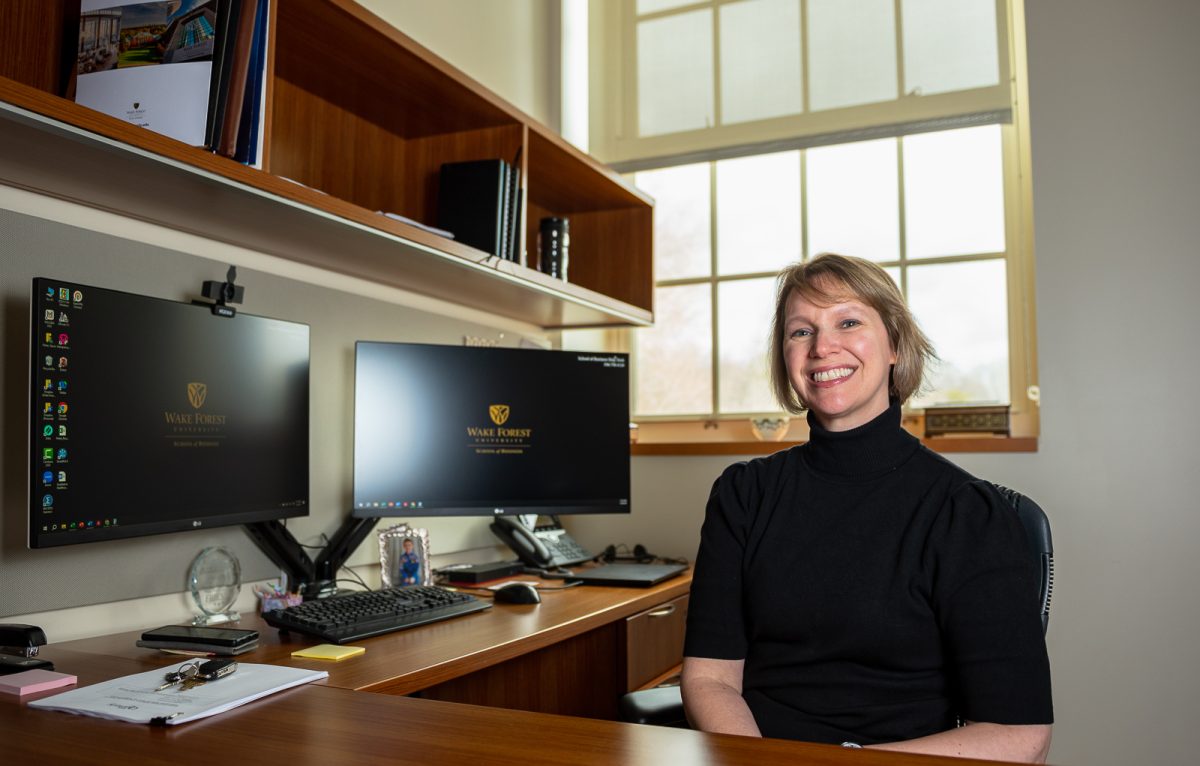“Where’s home for you?”
That’s the signature question that Vice President for Campus Life Dr. Shea Kidd Brown likes to ask students when she first meets them. She says it lets students share a part of their story and begin to connect with one another.
Connection is what Kidd Brown is all about, and she strives to make Wake Forest “a place where [students] can be themselves, where they can be at home.”
This semester, Kidd Brown started a podcast called “Kidd You Not,” which aims to bring guests about whom students might not know much, or perhaps those we perceive to be different from us. Using the podcast as a platform, she aims to get peoples’ stories out into the world.
To establish her esteemed guest list, Kidd Brown brainstormed an extensive list of people with whom she interacts daily and those that play central roles in campus life. She also received the input of students, namely her producer Vir Gupta (’25) and her fellow Gretchen Castelloe (’23). These guests are invited to share about themselves, exploring their “origin stories” with the goal of finding out what our shared humanity is.
“Ordinary people make the world go ’round,” Kidd Brown said. “We’re all humans … we’ve all had hardships, we’ve all had successes.”
Kidd Brown grew up in a community where she had to make connections with people who were different from herself. She shared with the Old Gold & Black that she has “navigated spaces” throughout her whole life because of her identity. Kidd Brown elaborated, “throughout my life, that was, that was my lived experience. And so I think I have often had an extra layer of empathy for finding people who may also be navigating the same things [giving me a] unique skill of connecting with people who are different because I typically had to.”
I may have an ability to shift and shake a culture in all the right ways, but I never have certainty.
— Dr. Shea Kidd Brown, Vice President of Campus Life
One of the memories that she associates with this was her experience in first grade as the only Black student in her class — she ended up becoming friends with “a redheaded little girl from Brooklyn, Mississippi.” The people with whom she made connections were from backgrounds unlike her own, which gave her a unique skill for finding out what sharing humanity means — one that she has carried and valued her whole life.
One of the people about whom she lights up the most is her grandmother, who she described as someone who lived with a duty to connect and understand people because of her work in the Civil Rights Movement. She learned from her that being curious about connection and how people experience life is more valuable than being afraid.
Threading through these anecdotes was the theme of home, as she finds that asking people where they call home, or how they define home, has been a “learning lesson” that is crucial in understanding how they walk through life.
One element of her podcast is allowing herself the time to be mindful — to take a moment to sit still and really focus on her guests.
“I had not expected that, you know, that was not something that I went into it saying this is how I’m going to practice mindfulness, but it has turned into that,” Kidd Brown said.
In her episode with Wake Forest Football Head Coach Dave Clawson, the topic was leadership, and it played a large role in how they connected. She spoke about how Clawson thought of their jobs as similar due to their responsibilities — because heading a team of any kind is a form of leadership.
Kidd Brown defines leadership as “action for good.” She went on to talk about being humble and vulnerable and “doing the right thing because it’s the right thing, and not to get recognition.”
When a leader has a sense of humility, they can enact greater change through what Kidd Brown describes as a “ripple effect.” She says having vulnerability can help us to be better leaders because we can more easily share our stories and grow our sphere of influence alongside our team.
To co-lead or lead alongside others involves “making meaning with other people,” Kidd Brown said.
When asked about what success means to her, Kidd Brown focused on how success is built through making mistakes — just hopefully not the same mistake twice.
Kidd Brown shared that she began college as a biology major, but as time progressed, she found it unfulfilling and sought to make a change. By acknowledging that shifting her path wasn’t a failure, she was able to better connect with herself and become more content, “it was really the finding myself part of that, that was success.”
These concepts of success tie back into how she defines effective leadership and collaboration, “knowing your strengths, knowing your opportunities, knowing your weaknesses” are important in understanding that “you don’t have to have all the answers.”
“I may have an ability to shift and shake a culture in all the right ways, but I never have certainty,” Kidd Brown said.
To live in uncertainty is to give up control, and Kidd Brown talked about how difficult that is for many people, including herself. Creating curiosity is a hallmark of Wake Forest’s culture, and Kidd Brown encourages everyone to live in uncertainty, ask more questions and cultivate their curiosity.
“Kidd You Not,” the brainchild of Kidd Brown, permits students and general listeners alike to truly think about how leadership, humility and vulnerability all interact and spur us to consider how we can better connect with ourselves and others in the pursuit of finding our shared humanity.
Kidd Brown wants Wake Forest to offer a unique chance for students to learn from faculty and staff members who we might not have otherwise known, because at the end of the day, as Kidd Brown said, “We’re [all] … people who want to make a difference in the world.”



